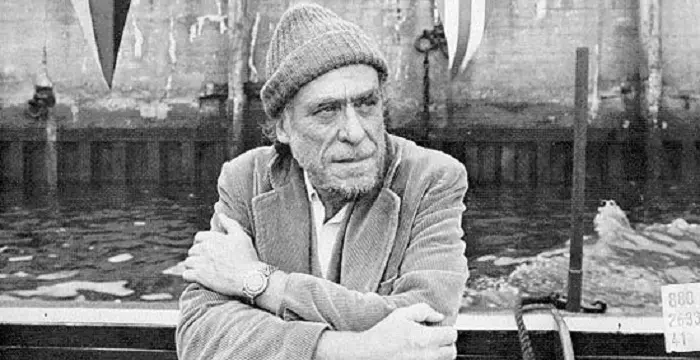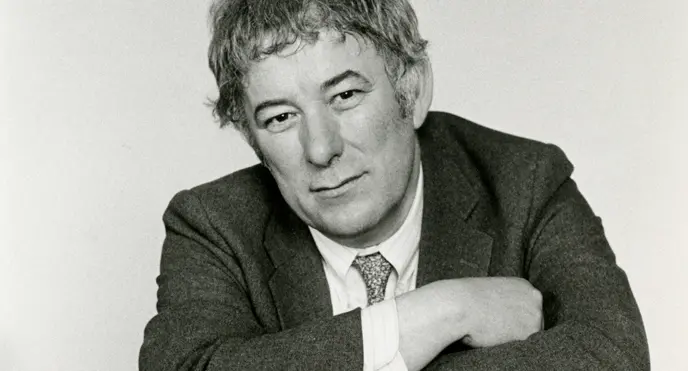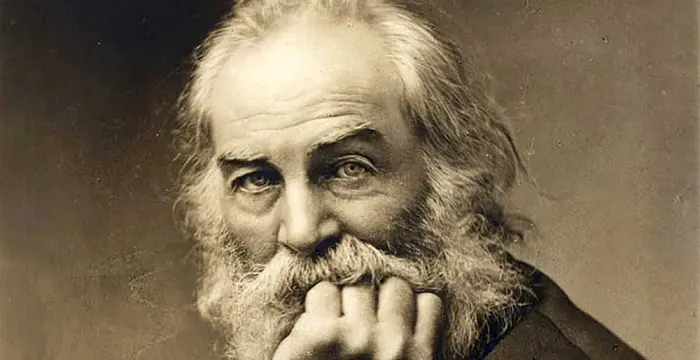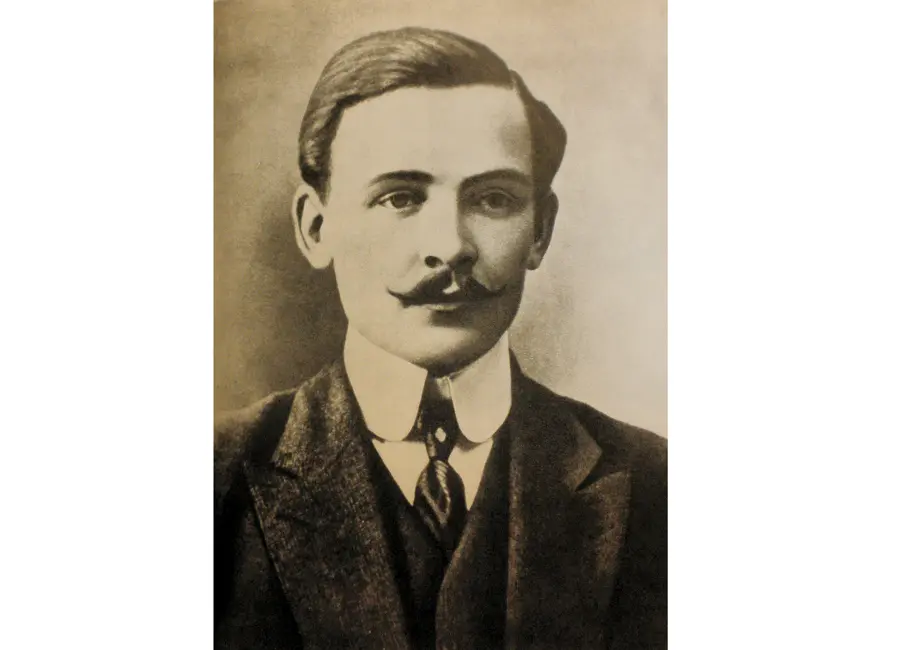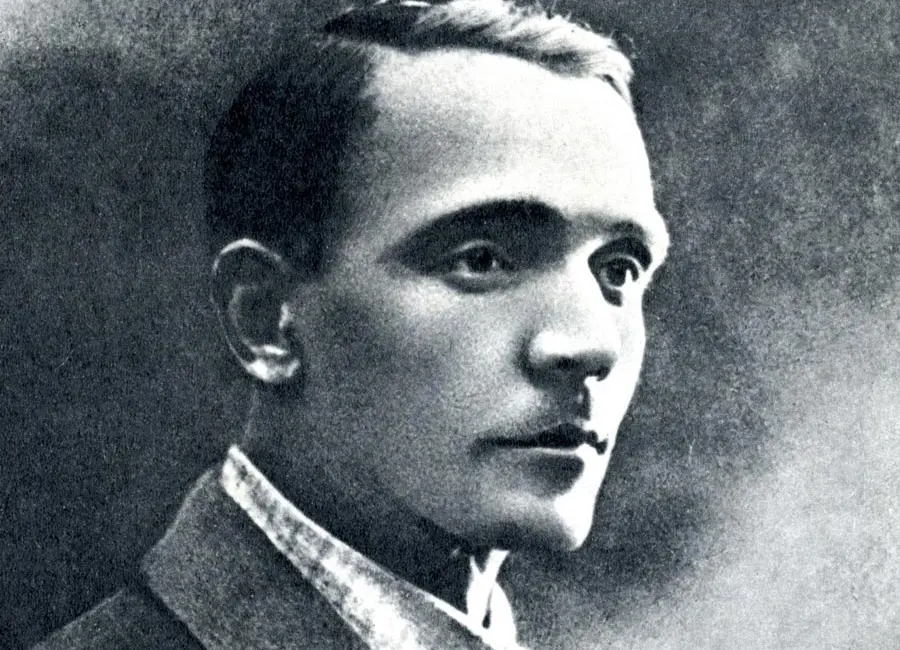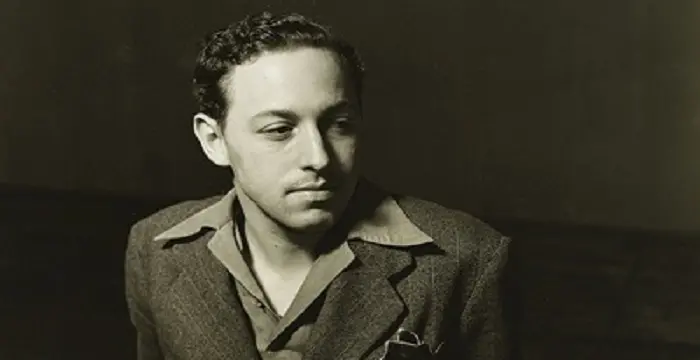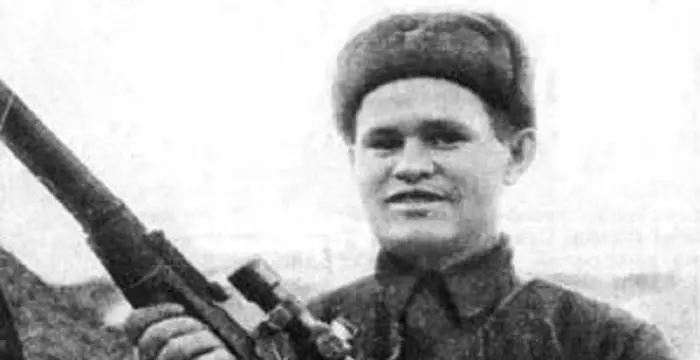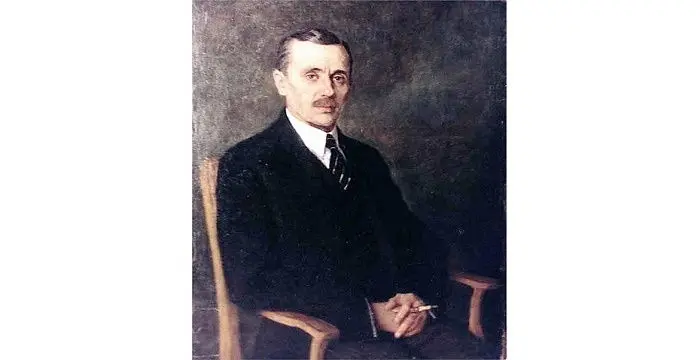
Yanka Kupala - Poets, Timeline and Family
Yanka Kupala's Personal Details
Yanka Kupala was a Belarusian nationalist poet, who is famous for his poem ‘Ад сэрца’ (‘From the Heart’)
| Information | Detail |
|---|---|
| Birthday | July 7, 1882 |
| Died on | June 28, 1942 |
| Nationality | Belarusian, Russian |
| Famous | Writers, Poets |
| Known as | I͡Anka Kupala |
| Cause of death |
|
| Birth Place | Maladzyechna Raion |
| Born Country | Belarus |
| Gender | Male |
| Sun Sign | Cancer |
| Born in | Maladzyechna Raion |
| Famous as | Poet |
| Died at Age | 59 |
// Famous Poets
Charles Bukowski
Charles Bukowski was a German-born American novelist, short story writer and poet. With this biography, learn in details about his childhood, life, works, career and timeline
Seamus Heaney
Nobel Laureate Seamus Heaney was an Irish poet, playwright and translator. Know about his profile, childhood, life and timeline in the biography below.
Walt Whitman
Walt Whitman was an American poet, journalist and humanist. Read this brief biography to find more on his life & timeline.
Yanka Kupala's photo
Who is Yanka Kupala?
Ivan Daminikavich Lutsevich, who is more popularly known by his pseudonym, Yanka Kupala, is the one of the National Poets of Belarus. Having been interested in the folk stories of his countries from childhood, he took the bold step of writing in his native tongue at a time when Russian was considered the official language. His initial writings were prohibited from being published, and those that did get published, led to the poet’s arrest.This popular writer harboured nationalist sentiments, encouraging revolutionaries, through his writing, to fight for their freedom. His poems and plays were so patriotic, that he was often considered a threat by the earlier czarist government, as well as Russian leader Joseph Stalin. This also made him popular with the masses and he was hailed as the “people’s poet”. He has written famous poems like ‘Мужык’ (‘Peasant’), ‘Жалейка’ (‘The Little Flute’), ‘Адвечная песьня’ (‘Eternal Song’) and ‘Ад сэрца’ (‘From the Heart’). The expansive collection of his literary works have been translated into more than hundred international languages. Yanka is also remembered for his translation of the Communist anthem ‘The Internationale’. To pay homage to the Belarusian poet, who is revered across the world, ‘UNESCO’ celebrated his centenary, and the government of his country observed his 125th birth anniversary, on a grand scale.
// Famous Writers
Joyce Meyer
Joyce Meyer is a Christian author and speaker. This biography provides detailed information about her childhood, life, achievements, works & timeline
Temple Grandin
Temple Grandin is a well-known American writer, autistic activist and animal expert. This biography profiles her childhood, life, achievements, career and timeline
Tennessee Williams
Tennessee Williams was one of the greatest playwrights of the 20th century. This biography of Tennessee Williams provides detailed information about his childhood, life, achievements, works and timeline.
Childhood & Early Life
Yanka Kupala was born to Daminik Anufryevich and Bianigna Ivanauna, on July 7 (O.S. June 25), 1882, in Viazynka, near Maladzyechna, in Belarus. The young child was christened Ivan Daminikavich Lutsevich, and registered as a member of the noble Lutsevich family.
Though belonging to the gentry, Ivan’s family were reduced to landless labourers. The family consisted of many children, and young Ivan was the eldest. In the 1870s, the family was displaced and had to move from one village to the other for sustenance.
As a schoolboy, Ivan was drawn by the charms of Belarusian folklore that was taught in the various schools he attended. In 1898, he completed his education from a public school in the district of Bialaruchi.
In 1902, his father passed away, and Ivan started working odd jobs like tutoring, helping at shops and keeping records.
Career
In 1903-04, Kupala used the pen name ‘K-a’ to write his first major Polish poem titled ‘Ziarno’.
During this time, the budding poet took a major decision to start writing in Belarusian. On July 15, 1904, he wrote his first Belarusian poem called ‘Мая доля’ (‘My Destiny’). The poem spoke about the common man and his journey through a life of oppression.
In 1905, another poem, ‘Мужык’ (‘Peasant’) was printed by ‘Severo-Zapadnyi Krai’, a Belarusian newspaper. This poem dealt with a village labourer who is faced with issues of confidence and self-respect.
From 1906-07, several other poems by Yanka, written in his native language, was published by the Belarusian weekly, ‘Nasha Niva’.
The poet settled down in Vilnius, the capital city of Lithuania, Northern Europe, in 1908, and published a compilation of poems titled ‘Жалейка’ (‘The Little Flute’). The book was seized and Kupala was arrested on claims that his poetry was against the Czar and his government.
In 1909, even though the poet was released, another book by him was impounded. Yanka did not wish to put the newspaper ‘Nasha Niva’ into trouble, and stopped getting his literary works printed by them.
The same year, the brilliant poet travelled to Saint Petersburg in Russia, where several of his works were duly published. His poems, like ‘Адвечная песьня’ (‘Eternal Song’) and ‘Сон на кургане’ (‘Dream on a Barrow’), showed influences of Russian writer, Maxim Gorky’s literary style.
In 1913, he came back to Vilnius and began writing for the weekly ‘Nasha Niva’. During the next few years he regularly met with famous Russian and Polish writers like L. Gira and V. Briusov. The latter had a profound impact on Yanka's writings, and he also translated some of the Belarusian poems into Russian.s
In 1915, he moved to Moscow, and pursued courses in History and Philosophy at the city’s ‘Shanevski People's University’.
The ‘Bolshevik Revolution’ took place, in October, 1917 and as a result, local soviets came into power after the defeat of the Russian provisional government. From then on, the talented Belarusian poet’s literary works were marked by a more optimistic tone.
Towards the end of 1918, Kupala became disillusioned with the ‘Bolshevik Revolution’ and wrote poems like ‘For My Native Land’, ‘The Song’, and ‘To My People’. Through these poems he urged the Belarusians to come together and fight for their rights.
Yanka translated the left-wing anthem, ‘The Internationale’, into his native tongue, in 1919-20, at the same time maintaining a nationalist point of view. During the same period, he started residing in Minsk, Belarus, where he was employed as a librarian at the ‘People's Commissariat of Education’ simultaneously writing for the magazine ‘Volny Stsiag’.
In the next decade, from 1921-30, he helped establish the ‘Belarusian State University’, the ‘National Theatre’, and the ‘Institute of Belarusian Culture’, which later came to be known as the ‘Belarusian Academy of Sciences’. During this time Kupala set up many publishing houses and printed his books of poetry, like 'Heritage' and 'The Unknown'.
For the next few years, a depressed Yanka did not produce many poems, owing to ideological differences between him and the ‘Belarus Communist Party’, which further led to emotional turmoil for the poet.
In 1941, the Nazis of Germany took over Belarus, and the exceptional poet had to move from Minsk to Moscow, and later to the Republic of Tatarstan, due to his failing health. Even while being away from his homeland, he wrote poems with the same nationalist fervour, supporting the cause of Belarusian freedom from the Nazis.
Major Works
Amongst the numerous poems and plays that Kupala has written, ‘Ад сэрца’ (‘From the Heart’) is one of the most popular works. The collection contains a poem titled ‘The Destiny of Taras’, which describes the life of famous Ukrainian writer, Taras Shevchenko. The book also contains other poems that had been penned during 1937-39, eulogising the Soviet rule.
Awards and Achievements
In 1925, Yanka Kupala was named the ‘National Poet of Belarus’, by the state institution, ‘Council of People's Commissars of the Belarusian Soviet Socialist Republic’ (‘BSSR’). He became the first Belarusian writer to earn the honour, and was entitled to earn lifelong pension.
This prolific Belarusian writer was felicitated with the ‘Order of Lenin’, the highest award given by the Russian government, in 1941, for his compilation of poems titled ‘Ад сэрца’ (‘From the Heart’).
Personal Life & Legacy
In January 1916, Kupala got married to a woman named Uladzislava Frantsauna Stankevich.
The poet died in 1942, after slipping off the staircase at Hotel Moskva, in Moscow. Though the death was declared as an accident, there are speculations of him having been assassinated by informers of Stalin, the Soviet dictator.
Belarusian literature courses include a specialised area called ‘Kupalaznaustva’ which is a detailed study of the poet’s work. His poems and plays are also a part of the curricula in the country’s schools.
His works have been translated into several languages, including the poem ‘And, Say, Who Goes There?’ which has been rewritten in English, Arabic, Italian, Chinese, German, Hindi, and Japanese, amongst others.
The ‘Yanka Kupala State Literature Museum’, in Minsk, Belarus, is named after the accomplished poet.
He is the eponym for villages, farms, schools, and streets, not just in his homeland, but also in countries like Ukraine, Uzbekistan, Russia, Poland and Georgia.
The ‘Kupala Literary Prize’ and the ‘Kupala State Prize’, which are awarded to exceptional poets and dramatists, have been named in honour of the Belarusian writer Yanka.
In 1982, UNESCO celebrated the hundredth birth anniversary of this peerless poet, and twenty five years later, his birth anniversary was observed by Belarus, on a national level.
Trivia
This famous poet is often compared to fellow Belarusian writer Yakub Kolas, who was also declared the National Poet of the country. Both poets were born in the same year, wrote patriotic poems and faced opposition from the government for doing so.
// Famous Russian peoples
Vasily Zaytsev
Vasily Zatysev was a Russian sniper who served during the World War II. Check out this biography to know about his childhood, family life, achievements and fun facts about him.
Zyzz (Aziz Shavershian)
Zyzz (Aziz Shavershian) was a popular Australian Body Builder and internet personality. Check out this biography to know about his childhood, family life, achievements and other facts about his life.
Kristina Pimenova
Read this bio to gather several facts, trivia and many details related to the personal and family life of Kristina Pimenova.
Yanka Kupala biography timelines
- // 7th Jul 1882Yanka Kupala was born to Daminik Anufryevich and Bianigna Ivanauna, on July 7 (O.S. June 25), 1882, in Viazynka, near Maladzyechna, in Belarus. The young child was christened Ivan Daminikavich Lutsevich, and registered as a member of the noble Lutsevich family.
- // 1898As a schoolboy, Ivan was drawn by the charms of Belarusian folklore that was taught in the various schools he attended. In 1898, he completed his education from a public school in the district of Bialaruchi.
- // 1902In 1902, his father passed away, and Ivan started working odd jobs like tutoring, helping at shops and keeping records.
- // 1903 To 1904In 1903-04, Kupala used the pen name ‘K-a’ to write his first major Polish poem titled ‘Ziarno’.
- // 15th Jul 1904During this time, the budding poet took a major decision to start writing in Belarusian. On July 15, 1904, he wrote his first Belarusian poem called ‘Мая доля’ (‘My Destiny’). The poem spoke about the common man and his journey through a life of oppression.
- // 1905In 1905, another poem, ‘Мужык’ (‘Peasant’) was printed by ‘Severo-Zapadnyi Krai’, a Belarusian newspaper. This poem dealt with a village labourer who is faced with issues of confidence and self-respect.
- // 1906 To 1907From 1906-07, several other poems by Yanka, written in his native language, was published by the Belarusian weekly, ‘Nasha Niva’.
- // 1908The poet settled down in Vilnius, the capital city of Lithuania, Northern Europe, in 1908, and published a compilation of poems titled ‘Жалейка’ (‘The Little Flute’). The book was seized and Kupala was arrested on claims that his poetry was against the Czar and his government.
- // 1909In 1909, even though the poet was released, another book by him was impounded. Yanka did not wish to put the newspaper ‘Nasha Niva’ into trouble, and stopped getting his literary works printed by them.
- // 1913In 1913, he came back to Vilnius and began writing for the weekly ‘Nasha Niva’. During the next few years he regularly met with famous Russian and Polish writers like L. Gira and V. Briusov. The latter had a profound impact on Yanka's writings, and he also translated some of the Belarusian poems into Russian.s
- // 1915In 1915, he moved to Moscow, and pursued courses in History and Philosophy at the city’s ‘Shanevski People's University’.
- // Jan 1916In January 1916, Kupala got married to a woman named Uladzislava Frantsauna Stankevich.
- // 1917The ‘Bolshevik Revolution’ took place, in October, 1917 and as a result, local soviets came into power after the defeat of the Russian provisional government. From then on, the talented Belarusian poet’s literary works were marked by a more optimistic tone.
- // 1918Towards the end of 1918, Kupala became disillusioned with the ‘Bolshevik Revolution’ and wrote poems like ‘For My Native Land’, ‘The Song’, and ‘To My People’. Through these poems he urged the Belarusians to come together and fight for their rights.
- // 1919 To 1920Yanka translated the left-wing anthem, ‘The Internationale’, into his native tongue, in 1919-20, at the same time maintaining a nationalist point of view. During the same period, he started residing in Minsk, Belarus, where he was employed as a librarian at the ‘People's Commissariat of Education’ simultaneously writing for the magazine ‘Volny Stsiag’.
- // 1921 To 1930In the next decade, from 1921-30, he helped establish the ‘Belarusian State University’, the ‘National Theatre’, and the ‘Institute of Belarusian Culture’, which later came to be known as the ‘Belarusian Academy of Sciences’. During this time Kupala set up many publishing houses and printed his books of poetry, like 'Heritage' and 'The Unknown'.
- // 1925In 1925, Yanka Kupala was named the ‘National Poet of Belarus’, by the state institution, ‘Council of People's Commissars of the Belarusian Soviet Socialist Republic’ (‘BSSR’). He became the first Belarusian writer to earn the honour, and was entitled to earn lifelong pension.
- // 1937 To 1939Amongst the numerous poems and plays that Kupala has written, ‘Ад сэрца’ (‘From the Heart’) is one of the most popular works. The collection contains a poem titled ‘The Destiny of Taras’, which describes the life of famous Ukrainian writer, Taras Shevchenko. The book also contains other poems that had been penned during 1937-39, eulogising the Soviet rule.
- // 1941In 1941, the Nazis of Germany took over Belarus, and the exceptional poet had to move from Minsk to Moscow, and later to the Republic of Tatarstan, due to his failing health. Even while being away from his homeland, he wrote poems with the same nationalist fervour, supporting the cause of Belarusian freedom from the Nazis.
- // 1941This prolific Belarusian writer was felicitated with the ‘Order of Lenin’, the highest award given by the Russian government, in 1941, for his compilation of poems titled ‘Ад сэрца’ (‘From the Heart’).
- // 1942The poet died in 1942, after slipping off the staircase at Hotel Moskva, in Moscow. Though the death was declared as an accident, there are speculations of him having been assassinated by informers of Stalin, the Soviet dictator.
- // 1982In 1982, UNESCO celebrated the hundredth birth anniversary of this peerless poet, and twenty five years later, his birth anniversary was observed by Belarus, on a national level.
// Famous Cancer Celebrities peoples
Jacob Elordi
Jacob Elordi is an Australian actor. Let’s take a look at his childhood, family, personal life, career, etc.
Riele Downs
Riele Downs is a Canadian-American actress & Musical.ly star. Let’s take a look at her family and personal life including age, birthday, net worth, boyfriends and fun facts.
Yammy Xox
Check out all that you wanted to know about Yammy Xox, the famous British YouTube Personality; her birthday, her family and personal life, her boyfriends, fun trivia facts and more.
Kaylee Quinn
Kaylee Quinn is an American dancer, model, and actress. Let’s have a look at her family and personal life including age, date of birth, net worth, relationships, and fun facts.
Sophia Montero
Sophia Montero is an American singer and YouTuber. Let’s have a look at her family and personal life including age, date of birth, net worth, relationships, and fun facts.
Domo Wilson
Check out all that you wanted to know about Domo Wilson, the famous American Vlogger & YouTube Personality; her birthday, her family and personal life, fun trivia facts and more.
Yanka Kupala's FAQ
What is Yanka Kupala birthday?
Yanka Kupala was born at 1882-07-07
When was Yanka Kupala died?
Yanka Kupala was died at 1942-06-28
Where was Yanka Kupala died?
Yanka Kupala was died in Moscow
Which age was Yanka Kupala died?
Yanka Kupala was died at age 59
Where is Yanka Kupala's birth place?
Yanka Kupala was born in Maladzyechna Raion
What is Yanka Kupala nationalities?
Yanka Kupala's nationalities is Belarusian, Russian
What is Yanka Kupala's cause of dead?
Yanka Kupala dead because of Accident
What is Yanka Kupala's sun sign?
Yanka Kupala is Cancer
How famous is Yanka Kupala?
Yanka Kupala is famouse as Poet
